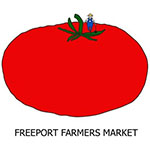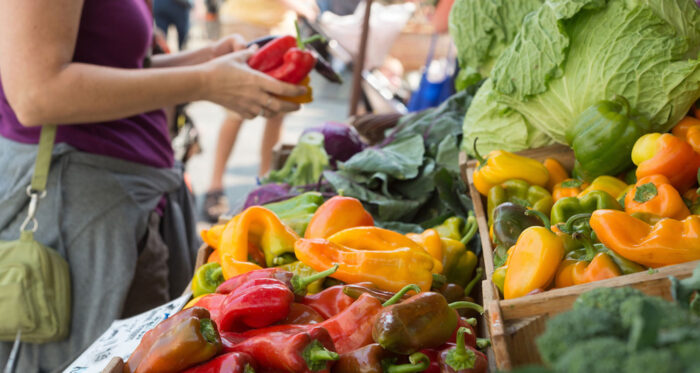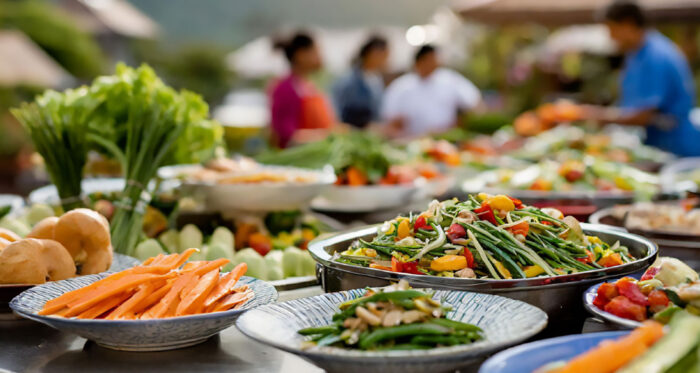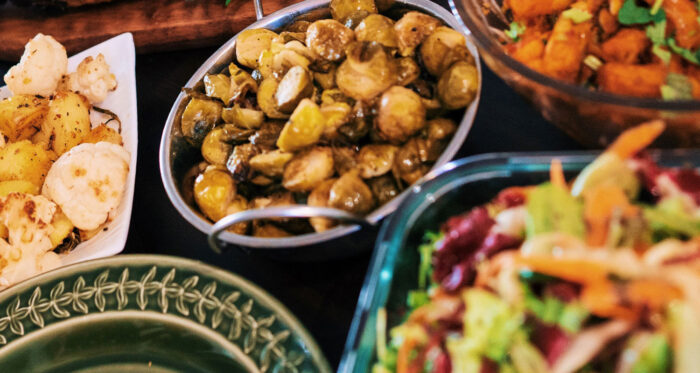FreeportCAN Action Group:
Food
About a third of all human-caused greenhouse gas emissions is linked to food. Eating more sustainably and reducing waste is essential to fighting climate change.
Impact
Food needs to be grown and processed, transported, distributed, prepared, consumed, and sometimes disposed of. Each of these steps creates greenhouse gases that trap the sun’s heat and contribute to climate change. Additionally, 30-40% of food in Maine is wasted. Shifting diets and addressing food waste can significantly reduce the demand for food.
Eating lower on the food chain and ensuring what’s grown gets eaten is a powerful combination that preserves our resources and lowers emissions. The Food Action Group works to educate our community about the carbon impact of our food habits, and make climate-friendly food options more available.
What you can do
 The FreeportCAN Food Committee created and operates the Freeport Farmers Market in an effort to fight climate change by creating an opportunity to eat local, support local farms, and get the community engaged. By shopping at the market, people are able to buy food that hasn’t needed extensive transportation and packaging, and support the work of local farmers. Local farms also create less waste than large production facilities, a major contributor to greenhouse gas emissions. The market now has 25 +/- vendors each week, and a growing number of community members who see the benefits of this addition to the town.
The FreeportCAN Food Committee created and operates the Freeport Farmers Market in an effort to fight climate change by creating an opportunity to eat local, support local farms, and get the community engaged. By shopping at the market, people are able to buy food that hasn’t needed extensive transportation and packaging, and support the work of local farmers. Local farms also create less waste than large production facilities, a major contributor to greenhouse gas emissions. The market now has 25 +/- vendors each week, and a growing number of community members who see the benefits of this addition to the town.
Join Us!
Act local and drive climate action now!
Only with a true community-wide effort will we meet our climate action goals.
If you have experience or interest in this area, we hope you will join a group of fellow activists in efforts to inspire action that is commensurate with the scale and urgency of the problem.
How We're taking action
Freeport Farmers Market Opening Day
Friday, May 30, 2025, 10:00 AM-1:00 PM Memorial Park on Bow Street Fre
FCAN Office
30 April, 2024Free Plant-Based Community Supper
Saturday, June 1, 5:00-7:00 PM Freeport Community Center Bradley Room
FCAN Office
29 April, 2024Plant-Based Potluck Suppers at Winslow Park
Every Thursday night June 29-August 25, 5pm-7pm Before each Meetinghou
FCAN Office
29 June, 2023




